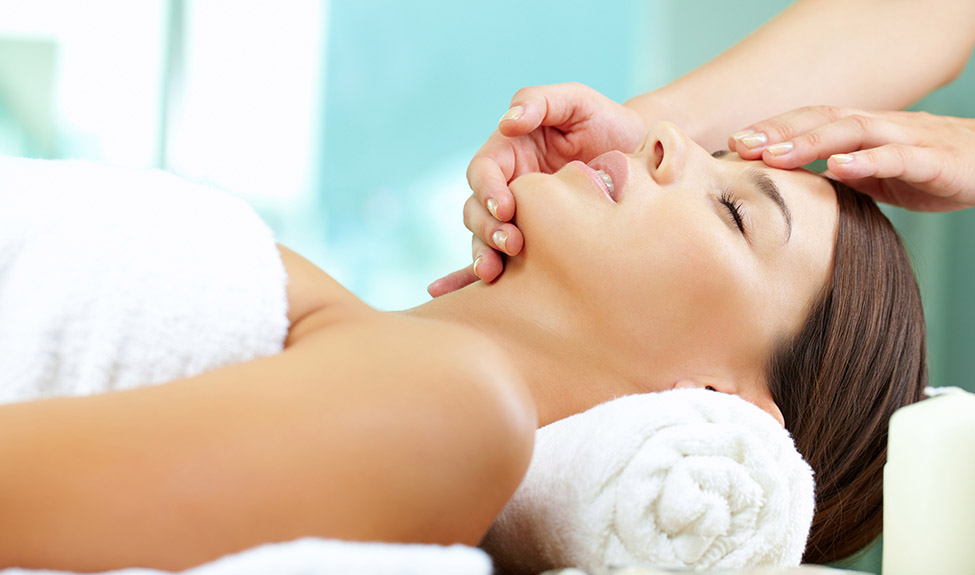The human immune system is incredibly complex. It is made up of a network of cells, tissues, and organs as well as the substances they produce which work together to help the body fight infection and disease. The most familiar components of the immune system are the white blood cells, also known as leukocytes, but the lesser-known elements of the lymphatic system are equally important.
The lymphatic system helps protect the body against illness-causing invaders (called antigens) but it also plays a role in absorbing fats from the digestive tract, removing cellular waste, and maintaining fluid levels in the body. As is true for any system in the body, malfunction in the lymphatic system can lead to a variety of health problems – it can also affect your skin.
Lymph naturally works its way through the body by way of the circulatory system, but it doesn’t have its own pump-like organ (the heart) to keep that flow regular. Fluid from the lymphatic system tends to accumulate in the face and neck where the lymph nodes are very concentrated.
When the flow of lymph becomes stagnant or interrupted, it can cause skin problems like acne, dryness, dullness, and puffiness. Lymphatic facials help restore the flow of lymph to resolve these issues.
How Does the Lymphatic System Work?
Every day, roughly 20 liters (about 5.3 gallons) of plasma circulate through the arteries, blood vessels, and capillaries in the body. Throughout the process, essential nutrients are delivered to the cells and tissues in the body while waste products are collected.
About 17 liters of plasma are recirculated into the body through the veins, but the remaining 3 liters end up passing through the capillaries and seeping into the body’s tissues. The lymphatic system is a network of vessels, tissues, and organs that collect the approximately 3 liters of fluid known as lymph. Lymph is a colorless fluid that eventually works its way back into the bloodstream.
The lymphatic system serves four primary functions:
- Protects the body against pathogens. As part of the immune system, the lymphatic system helps fight back against bacteria, viruses, fungi, and parasites by producing and releasing lymphocytes (white blood cells).
- Absorbs dietary fats from the digestive tract. The lymphatic system collects fats and protein wastes from the intestines and carries it back into the bloodstream through the flow of lymph.
- Helps maintain fluid balance. By collecting excess fluids from the cells and tissues and returning them to the bloodstream for recirculation, the lymphatic system helps maintain the body’s fluid balance.
- Transports and removes waste products. In addition to transporting the waste products produced by natural bodily processes, the lymphatic system also collects and removes abnormal cells from the body.
Lymphatic massage can help encourage healthy lymphatic flow, ensuring that the fluid doesn’t accumulate and stagnate in any one area. When lymph starts to build up in the face, it can lead to issues like puffy eyes, dull complexion, and skin irritation. Lymphatic facials incorporate targeted lymphatic massage to encourage drainage of the accumulated lymph and restore healthy flow.
The Benefits of Lymphatic Facial

The space under the eyes can gather lymph fluid, making them look puffy or swollen. When lymph accumulates under the skin, it can negatively impact circulation which may result in a dull complexion – it may even increase skin sensitivity. Lymphatic facials are designed to help drain excess lymph from the face to relieve these skin concerns and more.
Some of the key benefits of lymphatic facials include:
- Decreases under eye puffiness. The buildup of lymph fluid in the face can result in puffiness and inflammation – it’s a common cause for undereye bags but can often be relieved through lymphatic drainage massage.
- Improves dull skin tone. When the flow of lymph becomes stagnant, it can affect circulation and lead to a dull complexion. Restoring the flow of lymph helps nourish and oxygenate the skin to improve skin tone and healthy coloring.
- Relieves pore congestion. The lymphatic system collects waste and when it doesn’t flow properly, it can lead to congestion in the pores and more frequent breakouts.
- Opens the nasal passages. If you suffer from allergies or frequent sinus infections, the massage portion of a lymphatic facial may help evacuate accumulated fluid and clear the airways.
While lymphatic facials can benefit anyone who struggles with puffy eyes or dull complexion, it is important to remember that the technique originated from the medical practice of lymphatic massage. Clients who are immunocompromised in any way should speak to their physician before undergoing a lymphatic facial, as the lymphatic system is part of the immune system.
Individuals with active acne breakouts may also want to avoid lymphatic massage until the blemishes have healed.
How to Boost the Effects of Lymphatic Facials
While manual massage can be highly effective to release lymph buildup from the facial structures, many skincare professionals prefer to incorporate devices into lymphatic facials. Jade rollers and gua sha can be used to deliver targeted pressure, boosting the effects of a lymphatic facial. If you choose to use a device during lymphatic massage, be sure to keep your touch light and gentle – don’t drag the tool over the skin or apply too much pressure.
Applying moisturizer or facial oil prior to administering lymphatic massage helps reduce friction to protect the skin. You can also use essential oils – some oils may even give the lymphatic system a little boost. Oils that have stimulant and anti-inflammatory properties work best.
The following essential oils may work well for lymphatic drainage:
- Geranium – This essential oil has natural diuretic and anti-inflammatory properties. It has a light floral fragrance that is often used in aromatherapy to relieve anxiety, depression, and stress.
- Sweet Orange – Citrus oils like sweet orange and tangerine are also helpful as diuretics, helping remove excess fluid from the skin.
- Grapefruit – Similar to other citrus oils in its lymphatic benefits, grapefruit essential oil can also help tighten the pores and balance oil production.
- Tea Tree – This essential oil has both anti-inflammatory and antibacterial properties and may also have a soothing effect on irritated skin.
The key to an effective lymphatic drainage facial is to utilize the right techniques and products. Lymphatic facials incorporate special movements to help direct the flow of lymph away from the areas in which it tends to pool (such as under the eyes). Estheticians should be trained in lymphatic drainage massage, as it differs from traditional facial massage.

